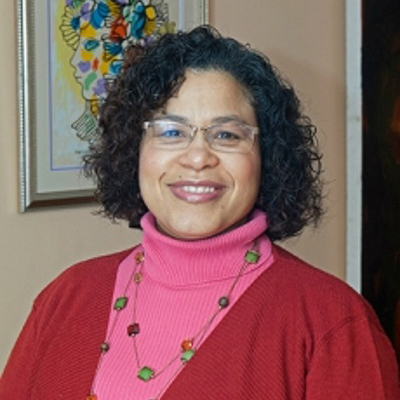Melina Pappademos
Associate Professor
Ph.D., New York University
Faculty Affiliate, Africana Studies Institute
Faculty Affiliate, El Instituto: Institute of Latina/o, Caribbean, and Latin American Studies
Areas of Specialty
Late nineteenth and twentieth-century Cuba, African Diaspora, Caribbean, and Latin America
Current Research Interests
Racial Consciousness, Political Cultures
Biography
Dr. Melina Pappademos earned a B.A. from Cornell University, her M.A. from the University of Illinois at Champaign-Urbana, and her Ph.D. in history from New York University. Her research and teaching interests focus on the social and cultural history of race, social and political mobilizations, and nationalisms, particularly of people of African descent in the Caribbean and Latin America. Supported by such institutions as New York University, the Ford Foundation, Harvard University, Wesleyan University, and the U.S. Department of Education’s Fulbright-Hays Research program, Dr. Pappademos published her first book, Black Political Activism and the Cuban Republic (University of North Carolina Press). The book was awarded the 2012 Murdo J. Macleod Best Book Prize from the Southern Historical Association-Latin American and Caribbean Section. It reconstructs historical patterns of black Cuban political activism and their relationship to the political structures and cultures of the Cuban republic (1902-1959). Her second book project, funded by a University of Connecticut Research Foundation Large Grant and a National Academy of Sciences Ford Foundation Postdoctoral Fellowship, examines racial symbolism during Cuba’s turbulent 1930s and 1940s.
Selected Publications
Black Political Activism and the Cuban Republic (Envisioning Cuba series, Louis A. Pérez editor) (University of North Carolina Press, September 2011).
- 2012 Murdo J. Macleod Best Book Prize, Southern Historical Association-Latin American and Caribbean Section
- 2013 Gordon K. and Sybil Lewis Best Book Award (Honorable Mention), Caribbean Studies Association
- Reviewed in Hispanic American Historical Review, August 2013, 93 (3): 521-522
Haitian Lives/Global Perspectives (Duke University Press). Radical History Review 115 (Winter 2013).
“‘Political Changüí”: Race, Political Culture, and Black Civic Activism in the Early Cuban Republic.” Rewriting the African Diaspora in the Caribbean and Latin America, Special Issue of African and Black Diaspora: An International Journal (Routledge), Vol. 5, Issue 1 (January 2012): 65-84.
“From Cabildos to Continuadora Societies: Political Community in the Black Cuban Imaginary.” Negritud: Revista de Estudios Afrolatino-americanos, Vol. II, no. 2 (Winter 2009): 152-177.
Reconceptualizations of the African Diaspora (Duke University Press). Special Issue Radical History Review 103 (Winter 2009).
- 2009 Best Special Issue (Honorable Mention)
- Council of Editors of Learned Journals (CELJ)
“Romancing the Stone: Academe’s Illusive Template for African Diaspora Studies.” In Issue: Journal of Opinion, Conceptualizing the African Diaspora, 35, no. 2 (1996): 38-49.
Select Recent Awards
2011 National Research Council, National Academy of Sciences, Ford Foundation Postdoctoral Fellowship
2011 University of Connecticut Humanities Institute, Faculty Residential Fellow
2007 University of Connecticut Research Foundation, Large Grant
2006 Harvard University,W.E.B. Du Bois Institute, Non-Resident Fellow
2005 Wesleyan University Center for the Humanities, Research Fellow
2005 Harvard University,W.E.B. Du Bois Institute, Sheila Biddle Fellow
2005 National Endowment for the Humanities, Summer Research Fellow
Links of Interest
El Instituto: Institute of Latina/o, Caribbean, and Latin American Studies
Afrocubaweb
Latin American Network Information Center at the University of Texas, Austin—The African Diaspora

| melina.pappademos@uconn.edu | |
| Phone | 860-486-3465 |
| Fax | 860-486-0641 |
| Mailing Address | 241 Glenbrook Road, U-4103, Storrs CT 06269 |
| Office Location | Wood Hall, Rm 202 |
| Campus | Campus: Storrs |
| Office Hours | Fall 2025: by appointment |
| Link | Africana Studies Institute |